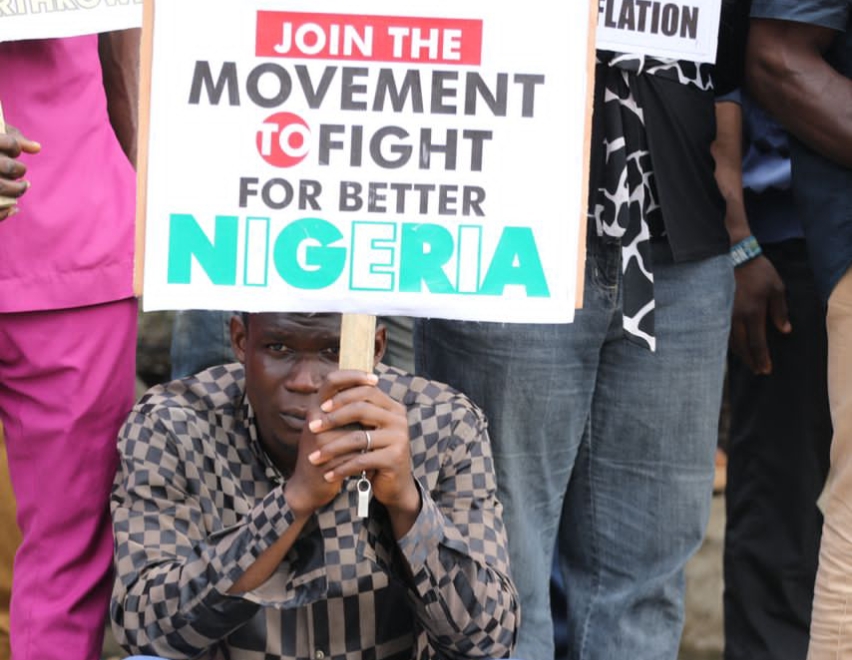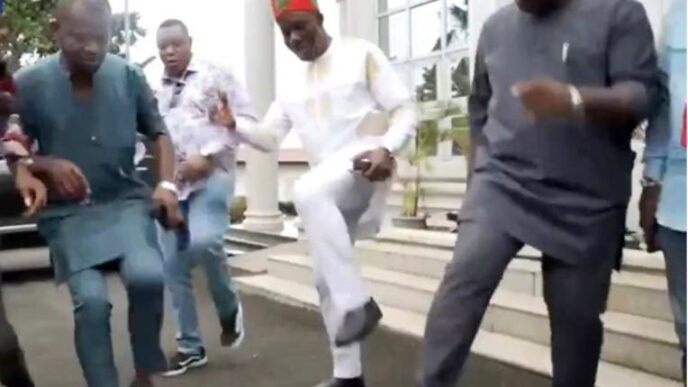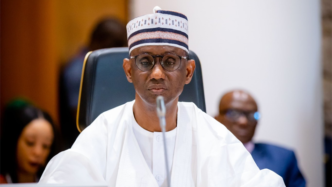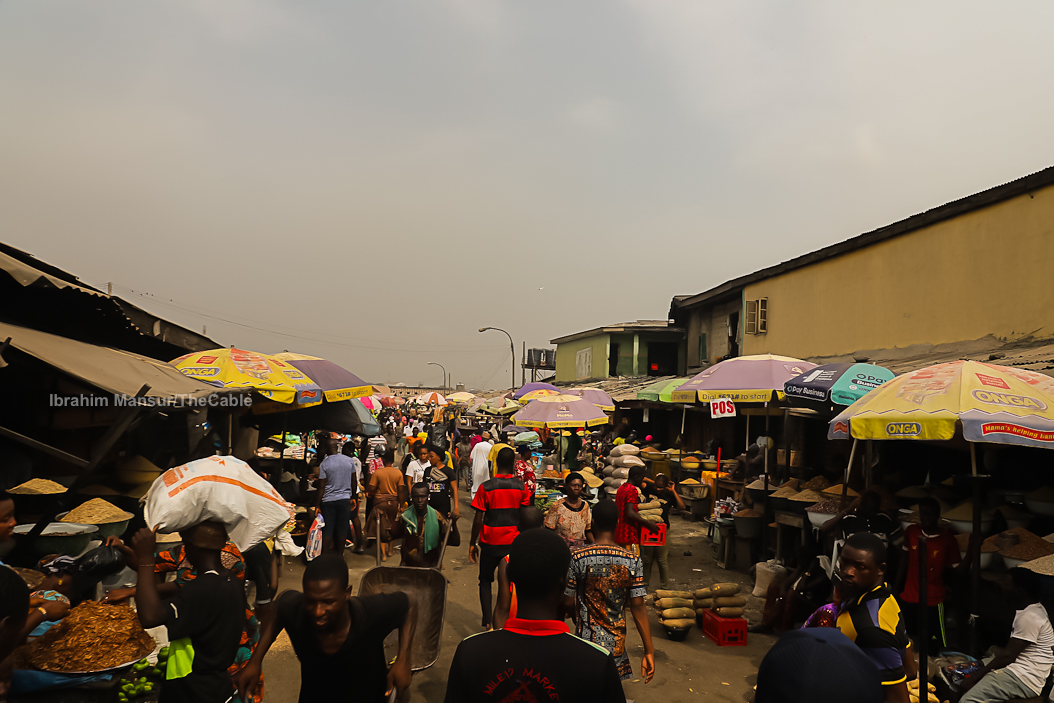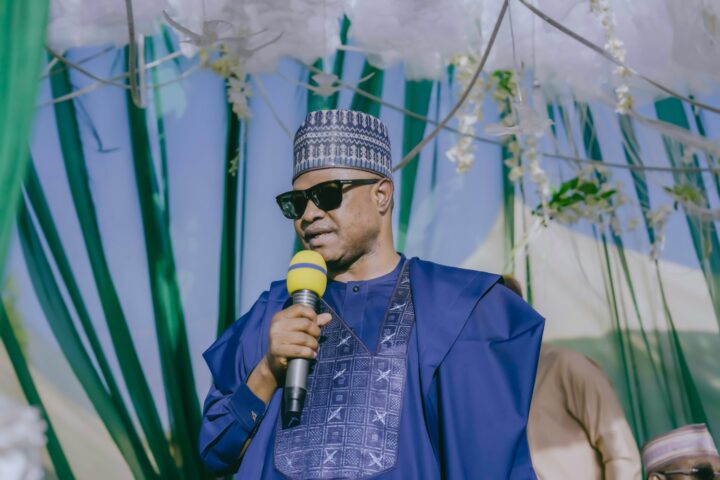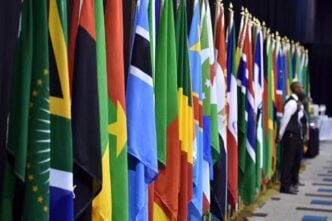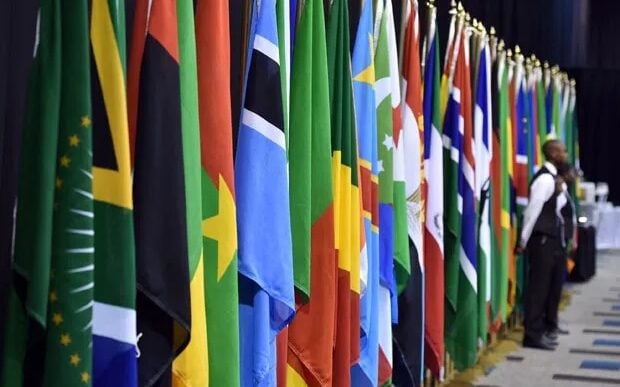#EndBadGovernance protest in August 2024 | File photo
BY ABU QASSIM
Nigerian politicians surprise me. As I read or listen to the views of many politicians on the current state of the nation, I wonder why they are just realising that things would get to this stage. Many Nigerians who are not in the corridors of power and not privileged to have access to the information available to those in power knew long ago that we were heading to the abyss.
Specifically, many of those who served in different capacities in the eight years of the Muhammadu Buhari government should share in the blame resulting in why the economy is this bad and why the nation is experiencing every other resultant effect of the collapsing sub-structure. Another group that deserves to be blamed is the crowd that will defend any bad policy, programme, process, or project as well as any action of the Buhari government. Among them are the so-called Buharists, members of the Buhari Media Organization, and members of his various support groups.
Why do I want to blame the state of affairs on the players in the events of the last nine years when the situation had become so bad long before then? Nigerian voters are discerning. For example, they saw through the Goodluck Jonathan administration and acted right by voting it out. The people wanted to change course and wanted better governance. So, they denied Jonathan’s re-election in 2015 and voted for change.
Advertisement
Nigeria chose a new party whose leading members had not controlled power at the federal level. They chose the change that the All Progressives Congress (APC) promised them. The APC candidate, Major General Buhari (rtd) was said to be determined to act like General Dwight David Eisenhower in the post-depression years in the US by fixing the economy, solving the problem of insecurity, and tackling corruption.
With that decision to change the situation for the better, Nigerians thought they had chosen a leader who would demonstrate discipline, focus, and ingenuity in the management of the economy. They expected a War Against Indiscipline in the management of the economy.
They wanted the new leader to display a clear understanding of how to rout the Boko Haram insurgents, kidnappers, cattle rustlers, and oil thieves. Nigerians needed the man who was said to be Mai Gaskiya, the one who owned “only a building with just a three bedroom flat in Daura despite having served as military governor, Minister of Petroleum, Head of State and head of a well-funded intervention agency, the Petroleum Trust Fund” to eliminate corruption in governance.
Advertisement
It turned out they voted for lies. The amount of public funds stolen under Buhari’s administration was perhaps more than the total money stolen in all of the previous administrations combined. It was under Buhari that the dollar became a ‘legal tender’ in Nigeria. Bribes were paid in dollars to government functionaries. Housing estates were built from scratch to completion without any single transaction going through the banks. Well, no allegation has been leveled against Buhari and neither has any probe indicted him.
Still, under his watch, insecurity rose to the high heavens. Insurgents, bandits, kidnappers, and cattle rustlers became uncontrollable. They were treated with kid gloves and they behaved like lords of the manor and laws unto themselves. Oil theft became the order of the day. Top government functionaries were believed to be involved or benefitting from the crimes. The people security agents accused of laundering money on behalf of the merchants of violence were never tried.
The people involved in the crime got open support and encouragement from people in and close to the government. The level of insecurity rose to the high heavens. Farmers were prevented from going to their farms as many were killed and some kidnapped for ransom. Farmer-herder clashes became the order of the day as the latter behaved as if they were above the law. They put on the attitude of ‘nothing can happen, our kinsmen are in charge’.
This led to food insecurity. Inflation came in. Since investments will only go to places that it considers safe for it to thrive, foreign investments became dry and owners of many existing companies began to divest and took to their heels. The government displayed a crass lack of understanding, knowledge, and purpose for reviving the economy.
Advertisement
What annoys me most is that at the time when the collapse became imminent, the sensible ones among the politicians who dared to speak the truth were persecuted, prosecuted, and repressed. Yet, they got no support, even from the ordinary people. That is why I pity a man like Dr. Abubakar Bukola Saraki. He was elected Senator and Senate President as a member of Buhari’s party, the APC. However, he envisioned that the independence of the legislature and the need for the law-making body to be vibrant and progressive was imperative for making the APC succeed in its set goals of making positive change in Nigeria. He opted for a leadership for the legislature that was elected and controlled by members.
He emerged as Senate President without the support of the establishment. Saraki then made the Senate formulate a Legislative Agenda in which it committed to helping the executive deliver on its promise of delivering a revived economy, improved security, and transparency in governance. The Senate under Saraki chose to hold the executive accountable and responsible to the people. The senators insisted that requests for loans by the executive made to the legislature should be accompanied by details on what the loan was meant for, how it will be sourced, and means of repayment.
The Eighth Senate insisted that Buhari must have a relationship based on mutual respect with the legislature and that the law-making body must not be treated with contempt by those who are totalitarian and ‘democratic dictators’. The legislators dared to call the Presidency to order any time the due process was violated.
When the power holding companies were reaping off electricity consumers by imposing fixed charges instead of installing meters that could be used to determine the actual rate of usage by each household, the senate under Saraki resisted the move and ordered that the companies should stick to the metering system. They also did not allow an arbitrary rise in the charges for mobile telephone service tariffs.
Advertisement
During the recession period, the senate initiated engagement sessions with key stakeholders to get suggestions on the way out. It eventually came out with a list of viable suggestions to the executive. They did the same with the issue of security.
Yet, in all four years, Saraki came under serious persecution, prosecution, and suppression. He was treated with ignominy. As a result of the hatred for Saraki by the Buhari inner circle, most of the useful legislation, suggestions, and initiatives from the national assembly was scornfully ignored by the Buhari presidency.
Advertisement
While all these were happening, most of the politicians who are now finding their voices to speak about how bad the state of the nation is, and those preaching a new code of conduct for the political class did not make a whimper. They were happy that a possible rival was going down and had met his waterloo. Some of them provided fabricated evidence to shoot Saraki down. Some of them even became cheerleaders to Buhari. To them, anything Buhari did was fine and good for the nation.
According to these politicians, Buhari and his henchmen were infallible. Anyone who disagreed with the policies of the Buhari administration was a saboteur, subversive element, enemy of the nation, and a devil. Now, the chickens are coming home to roost. The public that refused to support and encourage the likes of Saraki who saw through the emptiness, shenanigans, and misrule in the Buhari government are now paying a big price for their collaboration.
Advertisement
The politicians and the public who discouraged dissent, who encouraged the imposition of a culture of silence, and those who hailed the suppression of opposing viewpoints are now sulking as all the sectors of our society are collapsing gradually and at a fast rate. It makes me laugh when people complain that the Ninth Senate led by Ahmed Lawan and the 10th Senate led by Godswill Akpabio are rubber-stamp legislatures. What do we expect? The refrain since 2019 by the Senate leadership after Saraki is that “I do not want to experience the problems, hardship, and crisis which Saraki confronted in the entire four years he spent in office”.
Since Saraki left, other senate presidents have vowed to play safe and “enjoy the cooperation of the presidency”. This enjoyment includes an increased budget for their branch of government. It involves having security of tenure whether the senators like the leadership or not. It involves being conceded the power to nominate candidates for many elective and appointive offices. It means the prompt release of funds to execute constituency projects.
Advertisement
However, these comforts also make the legislature a sacrificial lamb and the first port of call when the people talk of bad governance and profligacy in our public offices. They have created a wide gulf between the legislature and the people. There are even open talks of abolishing the legislature. It is the same people who saw no reason to back the legislature when it stood up to Buhari between 2015 and 2019 who now condemn the same body from 2019 to date for always dancing to any tune called by the presidency. The people vilify the lawmakers for granting unquestionably any request placed before them by the executive.
This is a lesson to all Nigerians. We must all hold on to that popular saying that ‘to make Nigeria great is an assignment for us all’. We all need to play our different roles effectively. When we support authoritarianism and dictatorship, it has consequences. And great consequences for that matter. When we see those sections of the power group standing up to challenge bad policies, we must back them and exploit their stand to stamp out misrule. Maintaining a “See no evil, do no evil” stance in the face of bad or poor governance is itself evil.
Edmund Burke once said: “The only thing necessary for the triumph of evil is for good men to do nothing”. Those who now want to play the good men after they have allowed evil to triumph in Nigeria are evil people too.
Quassim writes from Abuja
Views expressed by contributors are strictly personal and not of TheCable.
Add a comment
